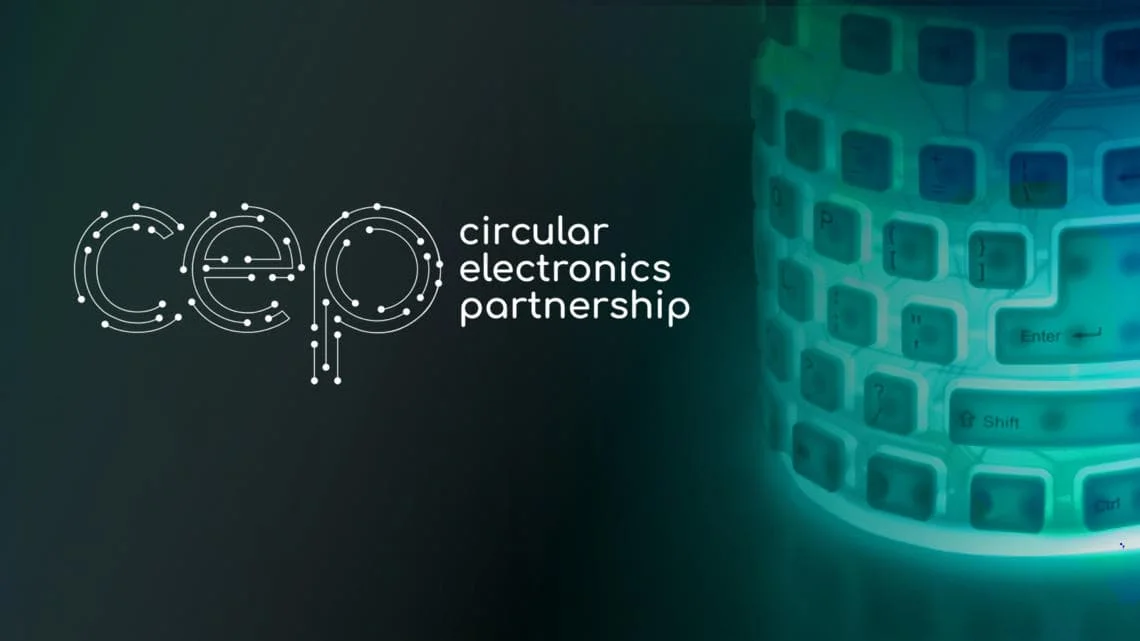Geneva, 18 March 2021: Launched today, the Circular Electronics Partnership (CEP) has brought together a group of pioneering global organizations and more than 50 experts from the electronics value chain over the past year, to start the first private sector alliance for circular electronics. As one of the founding partners and Secretariat host, the World Business Council for Sustainable Development (WBCSD) is thrilled to be at the heart of this transformative industry initiative.
The CEP marks the first-time experts, business leaders and global organizations will set a vision and roadmap committing to a circular economy for electronics by 2030 and co-design solutions around this topic.
E-waste is currently the fastest-growing waste stream in the world, estimated to reach 50 million tonnes in 2018. Research finds that only 17,4% of e-waste is collected and recycled. Worth at least USD$ 57 billion annually, e-waste value is greater than the GDP of most countries.
CEP’s vision seeks to maximize the value of components, products and materials through their full lifecycles using safe and fair labor and depending on only circular resources. These shifts will generate economic value while creating positive environmental and social impact.
This pre-competitive platform establishes a network of networks to elevate the coordinated action and ambition of the industry and will translate commitments into immediate actions, such as:
• Defining circular electronic product and services;
• Mobilizing a global, sustainable and circular procurement commitment;
• Developing a responsible recycling and circular material data system; and
• Piloting two material track and trace projects.
As part of the launch event, CEP also released its Roadmap for Circular Electronics. This document, co-developed by business leaders and experts, identifies six pathways to circularity. The Roadmap identifies 40 actions that must take place in the next 10 years to enable the industry to achieve circularity.
The CEP founding members include: Cisco, Closing the Loop, Dell Technologies, Glencore, Google, KPMG International, Lanxess, Microsoft, Security Matters, Sims Limited and Vodafone, among others.
The founding partners of CEP include: Global Electronics Council (GEC), Global Enabling Sustainability Initiative (GeSI), Platform for Accelerating the Circular Economy (PACE), Responsible Business Alliance (RBA), World Business Council for Sustainable Development (WBCSD), and the World Economic Forum (WEF). The vision and roadmap were developed in collaboration with other stakeholders, including the International Telecommunication Union (ITU).
“Electronics are omnipresent. Far beyond just computers, monitors and phones, electronics are commonly found in everything from clothing to toys. As applications scale, they should be circular in design, production, use and recovery to create a nature, climate and people positive value chain,” says Peter Bakker, President and CEO, World Business Council and Sustainable Development (WBCSD). “The Circular Electronics Partnership embodies this ambition and can serve as the center of gravity for electronics circularity. WBCSD is proud to host the CEP and we look forward to implementing the Roadmap with our Partners and the biggest companies in electronics.”
“There’s no time to waste in finding sustainable solutions for consumption and production,” says Dominic Waughray, Managing Director, World Economic Forum. “The roadmap and vision set forth by the Circular Electronics Partnership will create the necessary momentum to maximize resources, transform value chains and make the circular transition in electronics a reality.”
“Since creating our first OptiPlex desktop with recycled plastic in 2007 we have been on a mission to drive innovative approaches to accelerate the circular economy. It’s why we set an ambitious goal to get to 50% recycled or renewable materials across our entire product portfolio by 2030,” said Michael Murphy, Vice President, Product Development Engineering at Dell Technologies. “But as an industry, we need to move faster. Which is why the Circular Electronics Partnership is so important – to drive collaboration and eliminate roadblocks to make bigger strides in circularity.”
WBCSD news articles and insights may be republished in accordance with the Creative Commons Attribution-NonCommercial-NoDerivatives 4.0 International Public License, and in accordance with our Privacy Policy. All Content must be featured with due credits.

